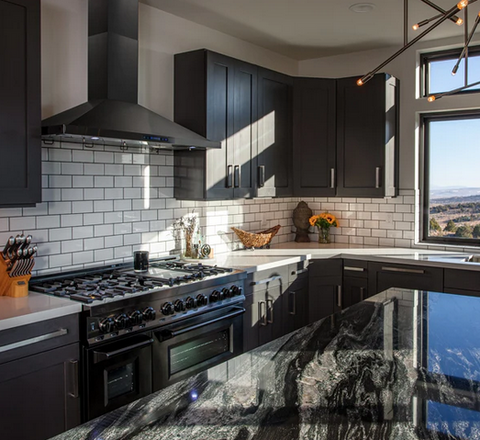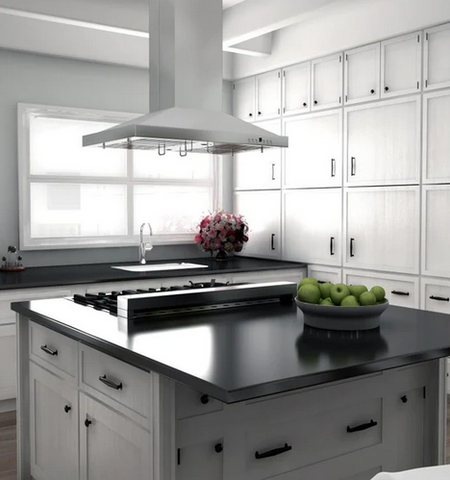Although the right range hood can be the finishing touch to any kitchen makeover, you should be shopping for more than just looks. Checking out the CFM rating of potential range hoods for your home is a crucial step to any buying process. Read on to find out why.
What is a CFM rating?

Range hoods use a CFM rating to measure how powerful their motors are. CFM stands for cubic feet per minute. This means the amount of air the range hood motor can pull per minute. As you can imagine, a larger CFM rating means a range will have a more powerful motor and can more quickly move out smoke and cooking smells. However, that’s not all that a CFM rating will tell you. While more powerful motors can pull more air through the filtration of the hood, the downside of more power is that it also produces more noise.
What CFM rating is best for my home kitchen?
When you’re looking at hoods, biggest isn’t necessarily best. You don’t need the power of a commercial kitchen hood for a home kitchen. There are some guidelines to follow when choosing the right range hood. 400 CFM is a good happy medium for most kitchens. The good news is that’s the rating you’ll find most range hoods carrying. Now, if you’re someone who does a lot of high-heat cooking (or you have the habit of burning food often) you could go up in horsepower as there are some home models that carry a 700 to 800 CFM. But you just have to be okay with trading for louder operations on these high-powered models. For most families, 400 CFM will be more than enough to clear and clean the air.
What to Look for When Choosing a Range Hood

Beyond the CFM rating, there are several other key questions to ask when choosing the right range hood for your home:
- Are the baffle filters dishwasher-safe?
- Does the range meet your home’s needs for external chimney or ductless recirculation?
- Does the range hood include energy-efficient LED lighting?
- Are there multiple speeds?
- Does it include a warranty? If so, how many years?
- Is there a timer option?
- Is molding available?
As you can see, there are many features to look for in a kitchen range. If you’re concerned about the noise-level of a potential kitchen range hood, many also list their decibel levels at each operational speed. This can give you another metric for comparing ranges. Consider shape, material, and features when picking out a range and you’ll be sure to find one that suits your family’s needs.



